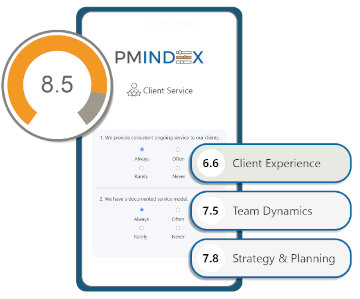How Do Your Prospects Perceive You?

In the first three seconds, your prospects form a basic idea in their mind about you. What is that basic idea? This is an important question because what your prospects think about you in the first three seconds determines if they become a client or not.
In those first three seconds, your prospects form an idea about who you are, what you are about, and whether or not they should spend more time engaged with you. For example, when you see a barbershop, you form the basic idea “hair” in your mind. If you see a dentist office, you think “teeth”. The question is: what basic idea do your prospects have about you? Keep in mind: This basic idea is not what you want them to think, it is what they actually think. If you are honest with yourself, you will admit they put you in a basic category such as “financial advisor” or “insurance” or “investments.” They have this idea because these words are probably in your company’s name, on your business card, or what you tell them in your elevator speech or value proposition. Why is this so important? It is important because a prospect is comparing you to their current financial advisor. They are contrasting you to that person to help them decide if it makes sense to switch.
Do You Stand Out?
Relying on a basic idea to convey what you do can have a serious negative impact on your business for three reasons:
- Basic ideas are not very interesting. If people think you are a “financial advisor” or an “insurance agent” or something equally basic, there is nothing for them to be curious about. There are no follow-up questions for them to ask because they figure they already know all about your business. As such, you don’t get their attention, you don’t engage their interest, and they see no reason to take the business relationship further. You are swimming in a pool of sameness.
- If people have a basic idea about you, they will think you are a salesperson who is trying to sell them a basic product or service, which is not surprising because that’s probably what you are trying to do. If they think you are a salesperson they will be more likely to put up a barrier. They won’t take your phone call. They won’t answer your email. And they won’t meet with you. It doesn’t matter what you are selling. You could have the best product in the world, but if your prospects think you are a salesperson, it will be harder to get an appointment with them. If you are perceived as a salesperson it becomes very difficult to position yourself as an expert.
- If prospects have a basic idea about you, they know they can get that basic idea from many other suppliers. You instantly commoditize yourself. It’s like you have a store in a mall, where all of the other 200 stores sell exactly the same thing as you. Customers come into your store and they only have one question: “How much?”, and if you don’t have the lowest price they will go to the next store. This puts you in a very competitive, price-sensitive situation because price becomes the dominant issue in the absence of distinctive value.
Can Your Clients Describe Your Value to Others?
Now you will inevitably acquire some new clients even if you are perceived as a salesperson. But how many referrals will you get? How compelling is it when a client describes you to a friend as being “Ok”? Being described as an “Ok” financial advisor will not make your phone ring off the hook with people wanting to meet with you. Advisors who are perceived as sales people create relationships with clients who become indifferent quickly and that puts them at risk in terms of being lured away or empowering someone else as new needs develop. Money is constantly in motion and needs change. You want to be attracting that business effortlessly, not chasing it or competing for it like a salesperson.
Continued Success!
Contributed by Duncan MacPherson











